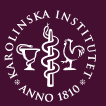Karolinska Institutet (KI) is one of Sweden's most prestigious medical and health science higher education institutions, located in the capital, Stockholm. It is renowned for its excellence in research and education, and enjoys a high reputation in the fields of medicine and life sciences worldwide. Here are some key information about Karolinska Institutet:
Overview
Founded: 1810
Institutional Nature: Public
Main Campus Location:
Stockholm, the main campus is located in Solna, and some facilities are located in Huddinge
History
Karolinska Institutet was founded in 1810 as the Kungliga Carolinska Medico-Kirurgiska Institutet, which was designed to train military doctors.
Over time, the institute has expanded into a comprehensive medical research and education institution and has become one of the world's leading biomedical research centers.
The institute is responsible for selecting the Nobel Prize in Physiology or Medicine every year, further enhancing its international influence.
Strength of the School
Karolinska Institutet is one of the largest single-discipline universities in Europe, focusing on the fields of medicine and health sciences.
The school has about 12,000 students (including undergraduates, postgraduates and doctoral students) and more than 7,500 faculty and staff.
It is a world leader in biomedical research, clinical medicine, public health and other fields.
The school's research results have an important influence internationally, especially in cutting-edge fields such as cancer research, neuroscience, and infectious disease control.
Educational philosophy
Emphasize the combination of basic science and clinical practice, and encourage students to explore knowledge in different fields.
Focus on the combination of theory and practice, and provide rich internship and research opportunities.
Attach importance to international education, recruit a large number of international students, and provide courses taught in multiple languages.
Committed to cultivating professionals with critical thinking and social responsibility.
Discipline settings
Undergraduate courses (Bachelor's degrees):
Pre-medical courses (usually two years)
Master's degrees (Master's degrees):
Medicine (6-year comprehensive course)
Dentistry
Nursing
Public health
Biomedicine
Pharmacology
Psychology
Neuroscience
Master's programs in other related fields
Doctoral programs (PhD programs):
Caroline College offers doctoral programs in multiple fields of medicine and health sciences, supporting in-depth research and innovation.
Featured Projects
Nobel Hall: As the selection body for the Nobel Prize in Physiology or Medicine, Karolinska University holds the award ceremony here every year.
Interdisciplinary Research Centers: The school has several interdisciplinary research centers to promote cooperation and exchanges between different disciplines.
International Cooperation Projects: Actively participate in the EU's Erasmus+ project and other international exchange programs to provide students with opportunities to study abroad.
Entrepreneurship Support: A dedicated entrepreneurship center is set up to help students transform scientific research results into commercial applications.
Hospital Cooperation: Close cooperation with many top hospitals, such as Karolinska University Hospital, ensures that students receive the latest clinical experience and training.
International Cooperation
Karolinska University has established partnerships with many top universities around the world and participates in many international research networks and alliances.
Provide exchange student programs to promote students' international vision and cultural exchange.
As a member of the League of European Research Universities (LERU) and other international organizations, Karolinska University enjoys an important position in the world.
Research Facilities and Resources
Karolinska University Hospital: A large teaching hospital that provides students with valuable clinical training opportunities.
BioClinicum: A new facility that integrates research and clinical care, facilitating rapid translation from the bench to the bedside.
Neuroscience Center: Focuses on neuroscience research, advancing the understanding of brain function and neurological diseases.
Science for Life Laboratory (SciLifeLab): A national life science research infrastructure that supports research in areas such as high-throughput genomics and proteomics.
Costs
For EU/EEA students, Karolinska Institute is usually free, but a small registration fee is required.
For non-EU/EEA international students, tuition fees vary by major, and specific fees should be consulted directly with the school or visit its official website for the latest information.
In terms of living costs, the cost of living in Stockholm is relatively high, but you still need to consider the costs of accommodation, food and personal expenses.
Application requirements
Applicants usually need to have a high school diploma or equivalent, and may need to complete certain prerequisite courses.
For master's programs, an undergraduate degree in a related field is usually required.
You need to pass an entrance exam or interview to demonstrate your interest in the chosen major and your ability to pursue a related career.
The English language proficiency requirement is usually level B2 (according to the Common European Framework of Reference for Languages CEFR), although some programmes may require higher proficiency.
-

Linnaeus University
-
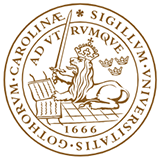
Lund University
-
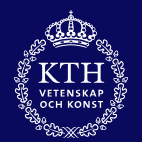
KTH Royal Institute of Technology
-
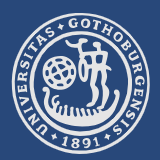
University of Gothenburg
-
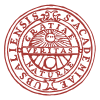
Uppsala University
-
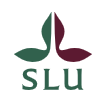
Swedish University of Agricultural Sciences
-

Halmstad University
-
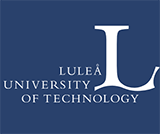
Luleå University of Technology
-
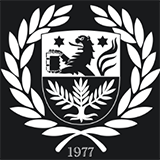
University of Skövde
-
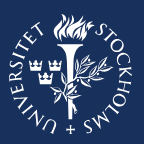
Stockholm University
-

Mesoamerican University
-

Istmo University
-

Mariano Galvez University of Guatemala
-

Regional University of Guatemala
-

Galileo University
-

Francisco Marroquín University
-

Rafael Landívar University
-

University of the Valley of Guatemala
-

University of San Carlos of Guatemala
-

Technological Institute of Tlaxcala Plateau
-

Golfo University
-

Technological University of South Sonora
-

Technological University of Huejotzingo
-

Tizimín Institute of Technology
-

Chilpancingo Institute of Technology

